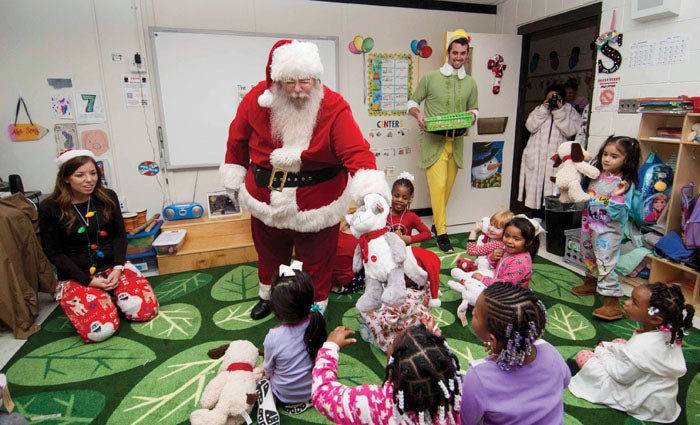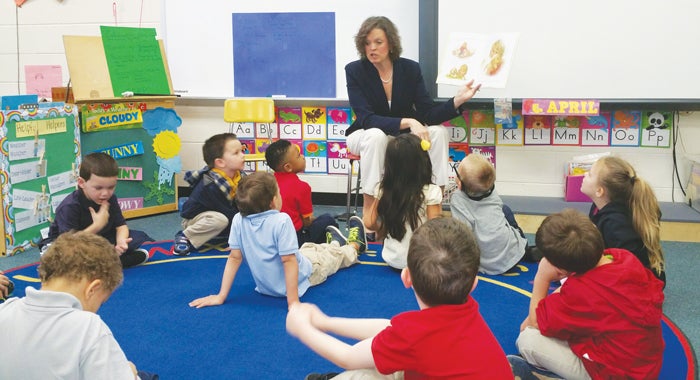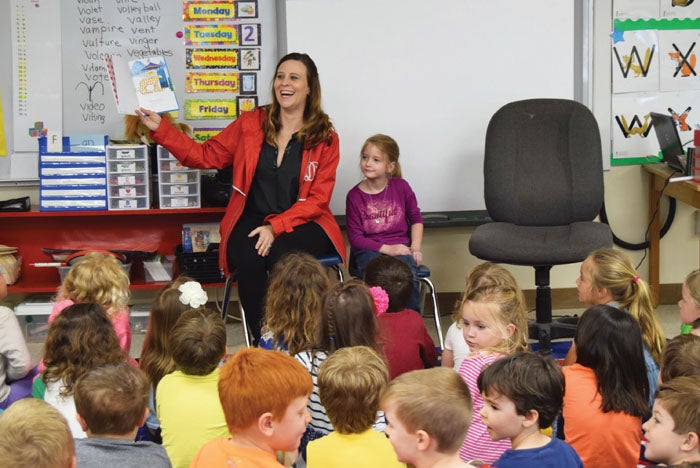Educators say parents should start thinking about pre-K now for 2020-2021
Published 12:00 am Thursday, February 20, 2020
SALISBURY – Parents need to start thinking about getting their children into pre-K now, says Rowan-Salisbury Schools Director of Early Learning Kelly Street.
And while pre-K is a way to prepare kids to succeed when they enter kindergarten, but it can be difficult to find a program that works for parents financially or even understand the process of finding a program to enroll in. There are several programs in Rowan County, but understanding those options can be confusing, Street said.
Benefits of participating are perhaps what’s most clear about local pre-K programs. Partners in Learning Executive Director Norma Honeycutt, whose organization serves students at pre-K age and much younger in addition to more holistic programs, said she believes it makes a difference in the world. Honeycutt has a saying that she is going to change the world. That starts with early childhood.
Honeycutt pointed to raw economic benefits of investing in early education: that every dollar spent on young students translates to about $7 in the future by impacting societal issues like crime.
“We can change the trajectory for children and families in our community,” Honeycutt said.
The most important years for development are early childhood. Street said children who are reading at grade level by third great have a better chance of graduating and going to college. Pre-K is designed to set up kids to succeed when they arrive at kindergarten. If kids come into kindergarten with some basic skills — knowing their names, how to count to 10, how to tie their shoes and work with a partner, it lets kindergarten teachers create exciting and fun experiences for them, Street said.
Pre–K goes beyond laying a foundation so kids can function better in a classroom, she said.
Among the many programs, there’s N.C. Pre-K, which is funded by the state and is offered by RSS some elementary schools as well as licensed locations throughout the county. There’s also title 1 pre-K offered through RSS that’s federally funded and offered at some of the other elementary schools.
Programs have different eligibility requirements. For N.C. pre-K, a family must be below 75% of the state’s median income or meet other conditions. Title 1, by contrast, looks at the academic needs of a child. So, a family could qualify for one program, both or neither. These programs are free for families that qualify.
N.C. Pre-K programs are licensed by the state and Title 1 Pre-K does not have a license attached to it and that gives them more flexibility.
Hardship in the county
There are families who barely miss the requirements for N.C. pre-K but are not be able to afford a private institution, where unsubsidized options can cost more than $100 per week, or get a spot in the Title 1 program. Meanwhile, Rowan-Salisbury Schools has 17 Pre-K classrooms total, so space can be limited. Street said access to pre-K is becoming a hardship in the county.
Street said living in poverty, having a single parent, living with grandparents with no parents in the picture, or even being homeless are all risks for students who could benefit greatly from pre-K but could also narrowly miss out on the pre-K opportunities through the schools.
The Salisbury-Rowan Community Action Agency offers a Head Start program, but the income threshold for that program is even lower than the threshold for N.C. pre-K. Generally, if a family does not qualify for N.C. pre-K, it would not qualify for Head Start. Rowan-Salisbury Schools also offers exceptional children pre-K based on special needs of some children, and the program is designed to support each child’s based on their individual educational plan. For example, Street said a student may only need speech therapy and can otherwise function in a standard classroom.
N.C. pre-K is part of the programs offered by Partners in Learning, which has one class of all N.C. pre-K students, two classes made up a blend of N.C. pre-K and students attending through other means and three classes with no N.C. pre-K students.
There are four ways students are funded to attend the nonprofit’s program: N.C. pre-K, subsidy from the state, payment by the family and partial scholarships which the nonprofit fundraises to provide.
Honeycutt said the nonprofit is always fundraising to make up the difference and offer its programs to more families. At the end of the day, the cost of tuition to families who pay out of pocket for the organization’s pre-K program still only covers 85% of the true cost to Partners in Learning.
Getting ready for 2021
There are other programs as well, with a number of local churches having pre-K programs and willing to work with families on prices. There are small pre-K programs run out of individual households, too.
Over the next few months pre-K programs will be getting ready for the 2020-2021 school year. Families who live in the county and have a child who will turn four before Aug. 31 can prepare for pre-K next year.
Rowan-Salisbury Schools recommends using the following questions when choosing a program:
- Do you need a pre-K that is close to your home? Close to your work? Or that provides transportation?
- Do you need a pre-K that has “wrap around services” and is open outside normal work hours?
- Do you need a pre-K that might be located at or near where your other children go to school?
- Do you need a pre-K that serves students with special needs or students with an IEP?
- Do you need apPre-K that is tuition free?
Applications for Rowan-Salisbury Schools’ Title 1 pre-K program begin March 17 at the Wallace Education Forum. The application deadline is April 17. Applicants will go through screening appointments scheduled individually and will be notified if they are accepted or placed on the waiting list by June 1.
Emily Teeter can be reached for information about Title 1 at (704) 630-6106.
N.C. pre-K applications opened in January. Families must schedule an intake appointment with Smart Start Rowan to be considered. Intake interviews have already begun and will continue through April 30. This program serves low-income families with some exceptions. Cinthia Rodriguez can be reached for information about N.C. Pre-K at (704) 603-3369 or emailed at crodriguez@smartstartrowan.org. The organization’s website is rowan-smartstart.org.
Head Start is a U.S. Department of Health and Human Services program offered locally through Salisbury Rowan Community Action and follows the application process of Smart Start Rowan. For more information about Head Start contact TeKeshia Duncan at (704) 216-2470 or Chandrika Cozart at (704) 216-2465. This program serves low-income families with some exceptions.
Street can be contacted with questions about finding the right program for a child at (704) 636-7500.






